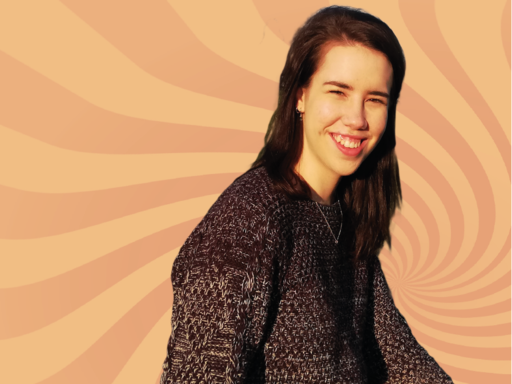
Sophie, 22, hasn’t let her depression and anxiety stop her from dating
When I was 17 I was diagnosed with a form of anxiety, and what my doctor called depressive episodes. I had extreme social anxiety and would go through long periods of just being really, really down. Not just feeling a bit sad, but hating everything about myself. Low self-esteem definitely fed into my anxiety and depressive episodes at that time.
I was treated with CBT and saw a psychologist, but at that point I wasn’t dating as I was very introverted and shy – I just spent all my time revising for my A-Levels. I had my first relationship at university, but things weren’t perfect; I would get anxious, and I worried a lot. In that relationship my mental health definitely impacted things, as sometimes I wouldn’t want to go out and do social activities. I had a lot of post-graduation anxiety, as I had no idea where my life was going, and the pandemic didn’t help. I was having multiple breakdowns a few times a week, and felt completely hopeless. When the relationship broke down, I fell into a bad depressive episode. I couldn’t see a future at all, and I felt like my life wasn’t going anywhere, which was really unusual for me.
A few months after the break up, I felt like I wanted to date again, and tried to navigate how to date while still in a depressive episode. Partly I just wanted a distraction – but to be brutally honest, I also wanted some positive attention and a confidence boost. I have a good relationship with dating apps, and it actually made me feel a bit better because I was getting social interaction. The ego boost I received was important after my breakup, especially when you’re in a depressive episode when you don’t like yourself very much.
I didn’t talk about my mental illness on dating apps; I just used them as anyone else would. I was able to go on dates, as due to my depression being high-functioning I could switch it off in social situations; sometimes people don’t realise that I have it. At that point, my anxiety wasn’t too bad, but I had a lot of self-hatred and thought that because I had depression that I wasn’t deserving of dates, or that I should wait until I was 100 percent recovered. I can understand the argument for that, as at the time it would have been unhealthy for me to go straight into a long-term relationship.
You shouldn’t feel bad telling someone you have a chemical imbalance in your brain
It is sometimes difficult to know whether to bring up your struggle with mental illness in the “talking” stage of a relationship. It’s a really personal thing, and it’s hard to know what the response is going to be. Especially if you’re in a really bad anxiety or depressive episode, it’s almost like any response you could get will hurt you; because your brain can easily trick you into thinking it’s negative. There was a point where I mentioned to someone I was talking to that I had a therapy session and was taking antidepressants. They didn’t really react and said it didn’t bother them; however, they never really asked about it again. While I didn’t want to be interrogated, I think that when you’re dating someone they should have an interest in that part of you.
I recently got into a new relationship, after meeting them on a dating app in January. In this relationship, my depression and anxiety don’t cause any issues. However, my depression is high-functioning at the beginning they would see the happy, bubbly side of me, and so they were quite surprised if I had a bad day, or I didn’t want to get out of bed. I think being open in a relationship is important, but you shouldn’t feel pressured to tell the other person straight away. You probably wouldn’t feel embarrassed telling someone you had asthma, so you shouldn’t feel bad telling someone you have a chemical imbalance in your brain. There is such a stigma around it, but it doesn’t make you different to anyone else; don’t forget that.
Interviewed by Isabelle Walker
